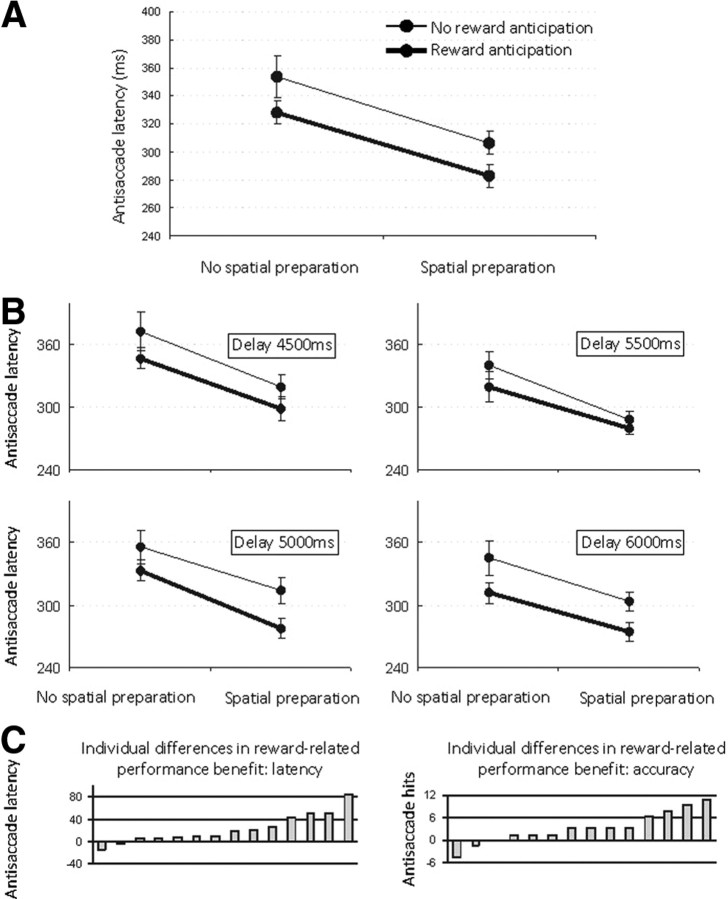Figure 2.
Effects of instruction cues on antisaccade onset latencies. A, Average antisaccade onset latency was significantly faster on reward-anticipation trials than on trials where no reward was expected, irrespectively of the level of spatial preparation. Average antisaccade onset latency was significantly faster on trials when a priori direction-specific knowledge on the upcoming response was available than on trials with no a priori direction-specific knowledge. B, Delay length between instruction cue and target (4500, 5000, 5500, or 6000) did not interact with the effect of reward anticipation or direction-specific (spatial) response preparation on antisaccade latency. Subjects' overall antisaccade latencies decreased linearly with increasing delay lengths indicating that the delay was used for antisaccade preparation. C, Reward-related benefit on average antisaccade onset latency and on antisaccade accuracy varied across participants. Error bars indicate meant ± SEM.

